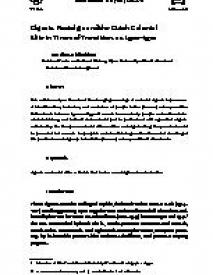Objects, Nostalgia and the Dutch Colonial Elite in Times of Transition, ca. 1900–1970
This article analyses the role of the changing meanings of material objects in processes of identification, inclusion, and exclusion of people in the (former) colony and the Netherlands between 1900 and 1970. It reveals how and why people and nation-states relate to history, and to the Dutch colonial past in particular. I will argue that objects collected by the European colonial elite and the nostalgic feelings they evoked could be powerful instruments for people’s social well-being and for the social standing of this particular social group in both the (former) colony and the Netherlands.
Geachte bezoeker,
De informatie die u nu opvraagt, kan door psychotraumanet niet aan u worden getoond. Dit kan verschillende redenen hebben,
waarvan (bescherming van het) auteursrecht de meeste voorkomende is. Wanneer het mogelijk is om u door te verwijzen naar de bron
van deze informatie, dan ziet u hier onder een link naar die plek.
Als er geen link staat, kunt u contact opnemen met de bibliotheek,
die u verder op weg kan helpen.
Met vriendelijke groet,
Het psychotraumanet-team.
In: Bijdragen tot de Taal-, Land- en Volkenkunde ISSN: 0006-2294 | 170 | 4 | 504-529
https://www.jstor.org/stable/43817973


